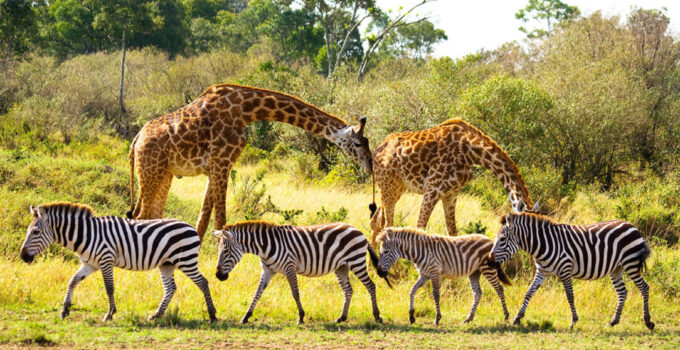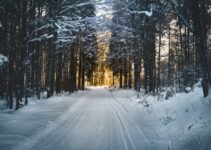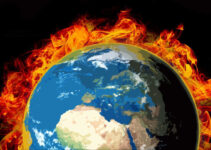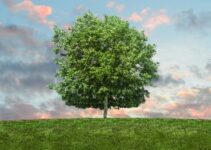The Cambridge Dictionary defines, wildlife as: ‘Animals that live independently of people, in natural conditions.’ How many times have you seen a wounded animal – perhaps a bird with a broken wing and felt the urge to do all you can to help? It’s in our nature to help injured animals. Naturalist Charles Darwin summed up this sentiment when he said:
“Few men could endure to watch for five minutes an animal struggling in a trap with a crushed and torn limb. Some will wonder how such cruelty can have been permitted to continue in these days of civilization.”
He is right as we can ask ourselves why does humankind allow mass extinctions of animals through our own makings if it’s in our nature to care about wildlife? It’s time we looked into the threats facing wildlife today. The number of animals living in the wild is vast, as you can imagine. Scientists do not know the exact number of living species existing in the world.
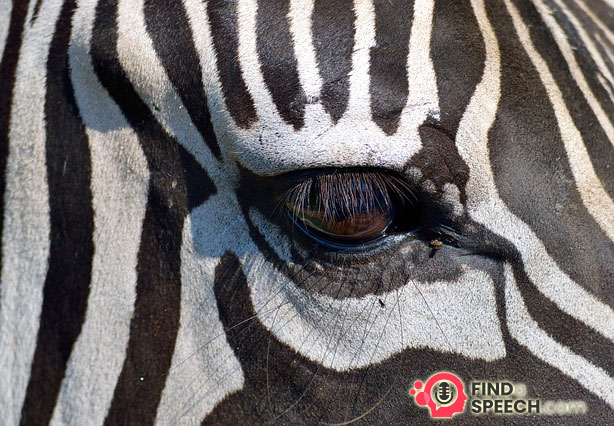
Protecting Wildlife Speech
After several centuries of documenting living things, scientists have only been able to document 14% of living species. The remaining 86% of species that are estimated to exist have yet to be discovered. According to the Global Atlas, It is estimated that planet Earth has approximately ‘8.7 million species’. As the rate of extinction has speeded up, thousands of living species are becoming extinct without being documented, and their existence will unfortunately never be known to humankind. Up to this point, researchers have been able to document around 1.2 million living species.
Since March 2018, the IUCN Red List, which catalogs threatened species, listed more than 30, 000 species as threatened or vulnerable to extinction, which means that the further ability to classify species is ok great risk. In short that’s 27% of all assessed species.
The largest threats to wildlife are climate change and humans invading or destroying their habitat. Overfishing is also playing it’s deadly part. Climate change danger to animals caused can include declining rainfall and increasing temperatures. Climate change also encourages the threat from invasive alien species, which can move into new areas as water flows and temperatures change. The Red List report reveals that 37% of Australia’s freshwater fish species are threatened with extinction. ‘58% are directly impacted,’ by climate change. Fish are highly vulnerable to extreme droughts caused by declining rainfall and higher temperatures.
Acclaimed American Scientist, Sylvia Earle said:
“We have been far too aggressive about extracting ocean wildlife, not appreciating that there are limits and even points of no return.
According to the Red List, the Short tail Nurse Shark Pseudoginglymostoma brevicaudatum (if you can say it), found in the Western Indian Ocean, has declined by approximately 80% over 30 years. ‘Simultaneously affected by climate change and importantly unmanaged fishing.
Let me now cheer you up with some good news. Some human conservation projects can be praised for helping the regrowth of endangered populations. In Mauritius, the Echo Parakeet (Psittacula eques) is on the road to recovery. Thanks to conservation efforts, including a commendable captive breeding program, there are now more than 750 Echo Parakeets in the wild.
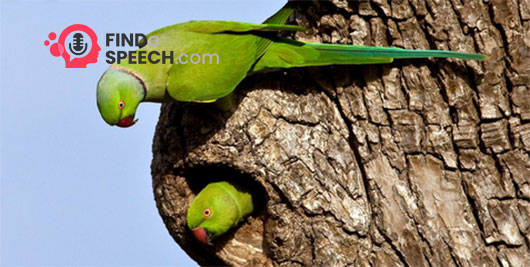
Echo Parakeet
With careful conservation projects, there has been a success in bringing back species that were even thought to be instinct. Among the amazing successes is the second bird in history to recover after being presumed extinct in the wild, the flightless, fast-running Guam Rail (Hypotaenidia owstoni). Another fine example is the California Condor which was once widespread on the Pacific island of Guam. It’s population withered when the Brown Tree Snake (Boiga irregularis) was accidentally introduced at the end of the 2 nd World War.
While humankind continues to expand its indomitable quench for resources and land, animals will always be under threat. Overpopulation is a key worry facing us this century and beyond. If war or natural disasters do not curb human populations governments will need to address population control sooner rather than later. It;s staggering to think China grew by over 400 million people since 1995.
Environmentalist and Naturalist, Chris Packham reinforced this burning issue:
“There’s no point bleating about the future of pandas, polar bears and tigers when we’re not addressing the one single factor that’s putting more pressure on the ecosystem than any other — namely the ever-increasing size of the world’s population.”
Many countries have pressing wildlife vs humankind issues. In Great Britain, the HS 2 is a controversial plan by the Government to construct a new high-speed rail network linking London, the West Midlands, Leeds and Manchester. Opposition groups say irreplaceable ancient woodlands are set to be destroyed by HS2. Conservationists such as Chris Packham are calling for a rethink of HS2. Other environmental lobbyists such as Client Earth, Greenpeace, Friends of the Earth, The Ramblers, RSPB, The Woodland Trust, Extinction Rebellion, The Wildlife Trust and WWF have also raised worries. The National Trust, too recently wrote to the government with their concerns over High Speed 2.
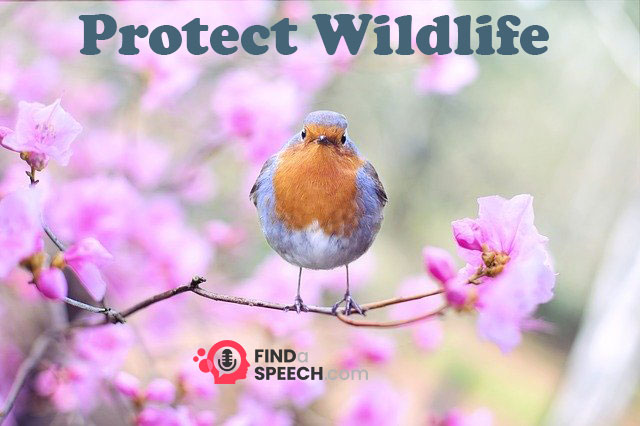
Speech on Protecting Wildlife
Packham is not only demanding a rethink but also the planting of millions of new trees.
If we continue to take large chunks out of ancient habitat where wildlife lives, we don’t have to be geniuses to know we are driving to extinction animals we care about. It’s time to get our priorities right and if that means loosing 1% of GDP because we stem population growth, prohibit global warming in the name of protecting wildlife and the environment so be it, that’s the path we should press for. Environmentalist David Attenborough has brought up the subject of overpopulation and protecting the environment many times. He recently reinforced his thoughts on the matter by saying:
“I’ve seen wildlife under mounting pressure and it’s not just from human economy or technology but behind every threat is the frightening explosion in human numbers.”
– David Attenborough
I am the author of the animal fantasy novel, The Zambezi Allies. All profits of the book are going to the World Wild Life Fund. Please buy it and support conservation

